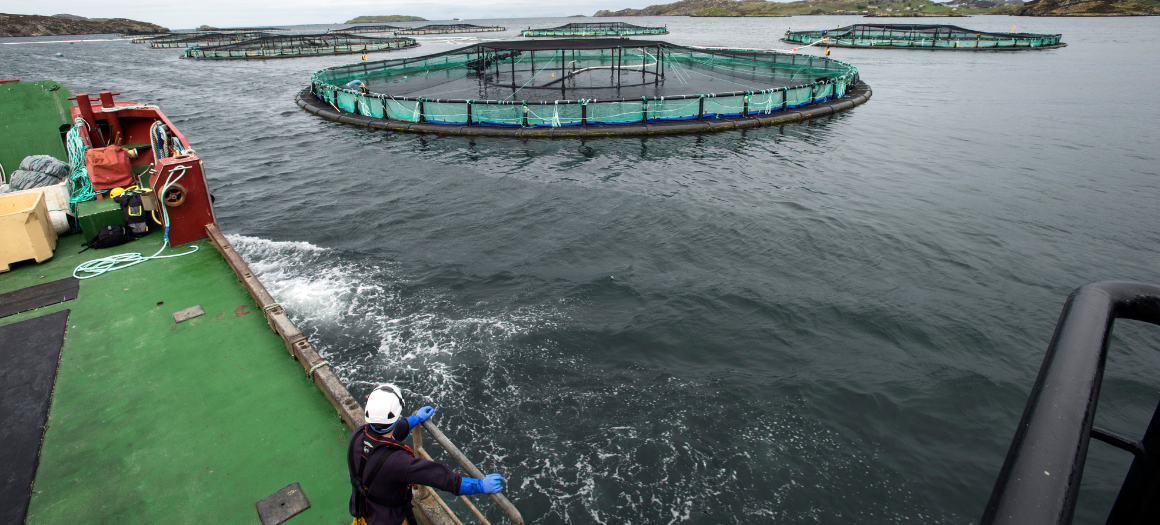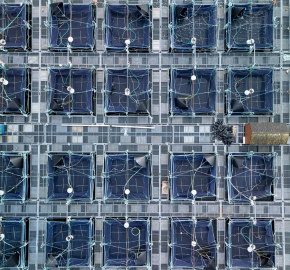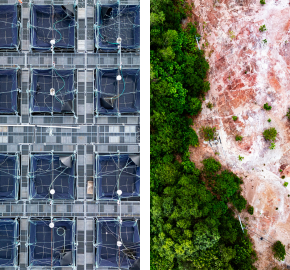Report by inter-governmental wild salmon conservation organisation NASCO slams Scottish Government’s failure to act on salmon farming impacts

A new report by the inter-governmental wild salmon conservation organisation, the North Atlantic Salmon Conservation organisation (NASCO), of which Scotland is a member, has lambasted the Scottish Government’s dismal failure over many years to protect wild salmon from the negative impacts of industrial salmon farming.
The report, written by independent experts commissioned by NASCO for its third performance review, “concludes that few effective measures have been translated into practical action to manage the adverse effects of salmon farms on wild Atlantic salmon stocks.”
It goes on to outline what action is required by member countries, warning that the consequences of further prevarication and inaction on salmon farming’s impacts risk pushing some river populations of wild salmon into an extinction vortex: “There are urgent practical actions that need to be taken to alleviate the pressures on wild Atlantic salmon populations arising from farm fish vs wild fish interactions if the species or at least affected river populations are to have any sustainable future.”
This report is a damning indictment of Scotland’s consistent and abject failure to protect our wild salmon from the devastating negative impacts of salmon farming. Scotland is paying mere lip service to the obligations that NASCO membership entails – namely that sea lice and/or escapes from salmon farming should not adversely affect wild salmonids.
Rachel Mulrenan,
Scotland Director of WildFish
In January 2023 the Scottish Government published its Wild Salmon Strategy Implementation Plan, in an attempt to tackle the decline of wild Atlantic salmon in Scotland. This included an undertaking to “continue to play an active role in the effective functioning of NASCO and the development and implementation of NASCO resolutions, agreements and guidelines.”
Ms Mulrenan continued: “This new report lays bare the blatant hypocrisy of the Scottish Government. The reality is that it has systematically ignored the implementation of NASCO’s resolutions, guidelines and agreements over many years, while kicking salmon farming regulation ever further down the road.”
The report is also scathing in its analysis of industry self-regulation, stating that: “based on the empirical data on genetic introgression and sea lice mortality…. self-regulation by the industry, as currently done, has been insufficient to protect the wild resource“.
Ms Mulrenan concluded: “The issue of sea lice from salmon farms spreading to wild fish populations, and its concurrent severe impacts on wild fish, will only start to be addressed once a back-stop adult female sea lice maximum is introduced on all fish farms.
“This must be rigorously enforced by tough and prompt action, set at 0.5 per farmed fish, dropping to 0.1 during the period of wild smolt emigration, in line with the precautionary principle. The Scottish Government should not, and must not, continue to rely on failing industry self-regulation, and must instead wake up to the reality that this unsustainable industry is causing irrevocable damage to our wild salmon.”



